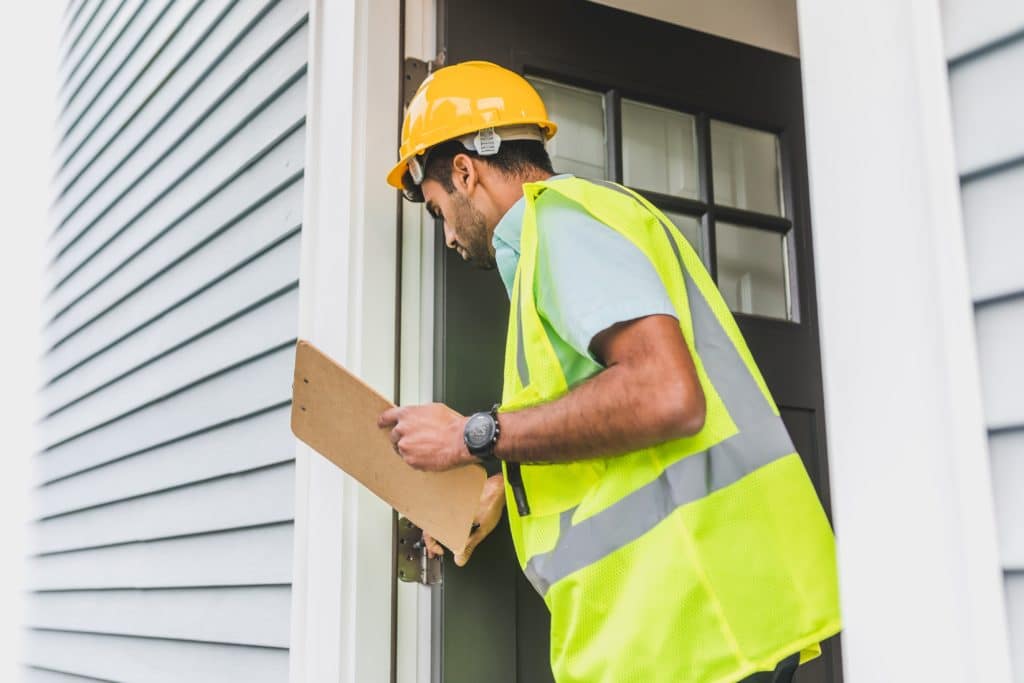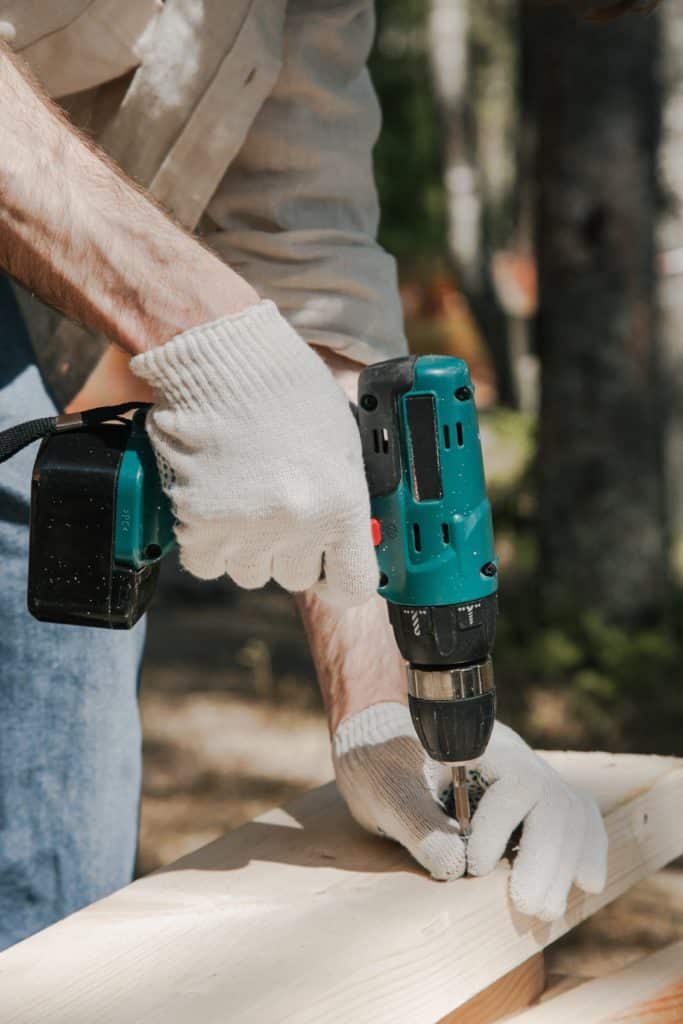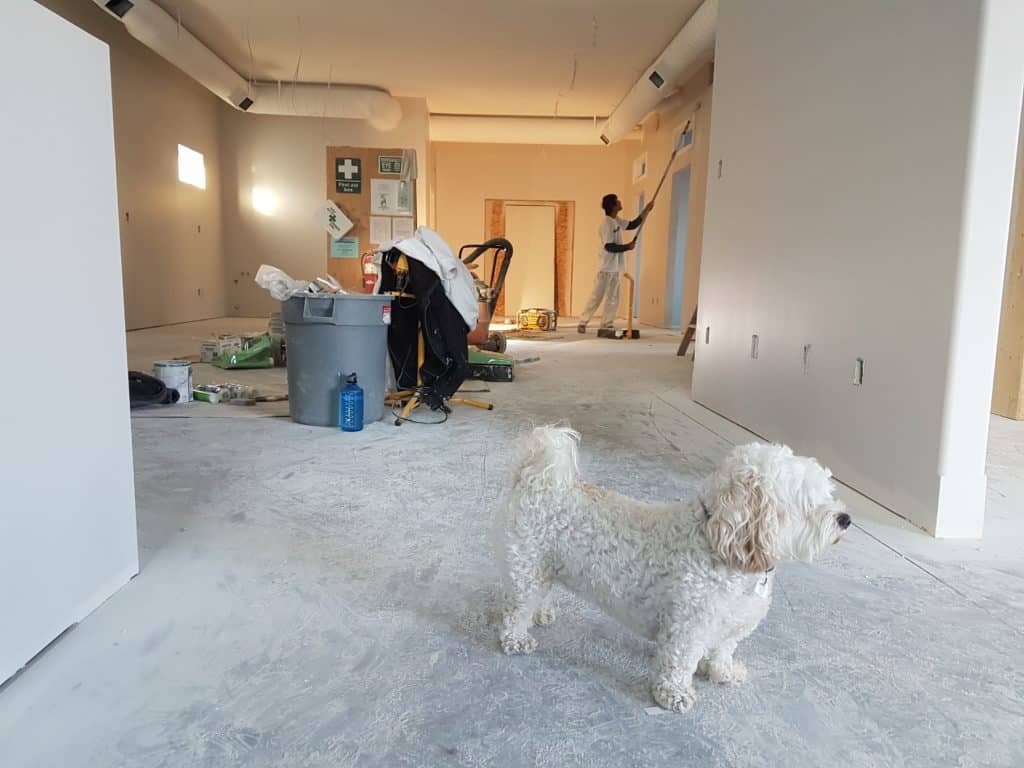What To Do If I Completed Unpermitted Improvements On My Property in Florida?
Many homeowners each year complete improvements to their homes that are not permitted. Sometimes this is done with the knowledge that the permits were not put in place, but in other cases, this work is done without the knowledge that a permit was required. Sometimes the mistake is not even revealed until the homeowner goes to sell their home.
If you think that you have completed an unpermitted improvement and are worried about what to do, there are some ways to remedy this issue. You might have changed the downstairs rec room into a theater or maybe you changed some of the wiring out for newer wiring without knowing that this requires a permit in Florida. No matter what kind of improvement you have done without a permit, you will want to remedy the situation as soon as possible so that there are no issues in the future when you want to remodel or sell your home.
If you are going to be doing any kind of major revision to your property, having a St. Petersburg code enforcement lawyer working on your behalf can be very beneficial for so many reasons. The process of documenting and permitting that is needed for these kinds of jobs can be complex, and it might be easiest for everyone involved if a legal expert takes care of all of the work on this part of the tasks that need to be done.
If you are ready to learn some more about what to do if you have completed unpermitted improvements on your property, you need to keep reading.
The Difference Between Non-Conforming and Illegal in Florida

Your home that was built in 1975 might have non-conforming alterations to it, but the changes that you made last year without a permit will be considered illegal. Many people are not aware of the difference between these two categories until they go to sell their home and an inspector tells them there are one, or both of these kinds of changes in place on the property.
Non-conforming changes will need to be brought up to code, but if you were unaware that these items were in place in your home, you will typically not be fined for their presence. There are many instances where older homes are sold to people with undisclosed non-compliant alterations to them that are missed in the pre-purchase inspection. It is understood that people who are buying older homes might not be aware of all the various non-compliant parts of the structure that are linked to its age.
On the other hand, illegal changes will often require that the permitting process be taken care of, even if you were not the owner of the home when the changes were made. This can add up quickly to hundreds of dollars, particularly if the permitting problem relates to a large remodel or major changes to the home. It would be wise to have an inspector look at any home that you are trying to buy before you purchase it so that these kinds of things can be discovered and taken care of. If you are the one who has performed the unpermitted changes, you need to be aware that they will almost certainly be discovered when you try to sell your home.
In some cases, illegal changes can actually make the sale of your home impossible until they are remedied. This can also greatly impact the actual value of your home and you do not want to leave the sale of your property up to the chance that someone will not ask for an inspection of the property before they buy. This is also really not very fair to the new owners or the people that you leave your home to since there could be safety issues related to the work that was done without permits.
Why Are Permits Required in Florida?

It is relatively easy to look up the permitting requirements for any kind of change that you want to make to your property. These are public record and if there are permits required by your HOA, you should also be able to find this information in the bylaws for your neighborhood. You should not use the excuse that you could not find the information about permitting for a job you want to do on your property since there really is no impediment to checking on this necessary step before you begin a project of some kind. Make sure that you are not skipping this step to avoid major issues down the road related to unpermitted work on your property.
When wiring or other potentially dangerous parts of a structure are changed or altered, there needs to be a permitting process on file to ensure that they are safe. This is one of the main ways that fires and other kinds of issues are prevented in neighborhoods and permitting should be viewed as a matter of public safety. While it might be inconvenient to you to get a permit and pay the fees associated with it, or you might think that you know enough about these kinds of jobs to be exempt from worries about structural failures or fires, these laws exist for a reason. Without permitting laws, many people would just try to do their own wiring, construction, and other kinds of alteration to their property without any concerns for safety.
Even if you have a company coming in to take care of the work for you, they might not be aware of the codes that need to be followed for your area. Having permits on file helps communicate to these parties what the building standards are for your county so that there are no issues in the future with the completed work that is done. These standards are almost always related to safety and should be followed by anyone who is doing work on any structure, whether it is privately owned or not.
Kinds of Jobs That Require Permits in Florida

Tree houses and other kinds of playhouse structures might also necessitate a permit in your area. This is more commonly an HOA-governed permitting process, but depending on the size of the structure, there might be county or city-level permits that are needed for this kind of alteration to your property as well. You can easily look up the rules for things like garden sheds and play structures so that you know if you will need a permit for this kind of work or not. These are also not the kinds of things that tend to cause major trouble for home sales later, but it is still wise to ensure that you do not need to have a permit or insurance in place when you are installing these items.
While there are some exceptions in specific counties for certain kinds of work, you can expect that in most parts of Florida, these kinds of alterations will require a permit before they are done. Even changes to sea walls, docks, and piers require the right permits to be put in place. It is wise to consider that any kind of change or improvement that you want to make to your property will necessitate a permit and insurance being in place for the job. Even flagpoles or alterations to an existing flagpole might require a permit in some parts of Florida, so it is better to be safe than sorry.
It is never wise to start a job and then ask for permits either. There are numerous fines that are associated with unpermitted work being done on a property and you might have to pay far more than the cost of the original permit to continue work on your property. This is not the kind of thing that you want to do first and ask for forgiveness later. You will always be better off to ask for the permits and insurance that you need and get these items in place before you complete work on your property of any kind.
Many people incorrectly think that small changes will not need a permit. While this might be the case, there are so many kinds of changes to your property that will require a permit that you should not make this assumption. These regulations and rules are in place for public safety and they cover a wide array of things that you might want to do on your property. While it might seem like these permits are not benefiting you in any way, you really should be sure that the work that is done on your property is up to code for your own safety as well as the future safety of your home.
What to Do If You Have Completed Unpermitted Changes to Your Property

If you have done extensive work that is not permitted, however, you need to be aware that you might be in violation of zoning laws in Florida that will necessitate a change back to the original purpose of the space. This can happen with mother-in-law apartments and other kinds of changes to areas that were not originally built as living spaces on a property. This is one of the main reasons that people tend to avoid getting permits for work that is done on their property. However, going ahead with a major remodel that was not done with a permit on file can lead to disaster later if you find out that you would not have been allowed to make the changes to your property in the first place.
This is one of the many reasons why getting a lawyer can be ideal for this kind of situation. You will want to have professional help to navigate an error related to a remodel or other large project that is not allowed under zoning or county laws. You might still have to make major alterations to the work that was done, but your lawyer might be able to remedy the situation so that you do not have to completely remove the remodel or the second living space that you have built on your property.
While many people argue that they don’t intend to sell their home so this does not matter, you need to remember that you will be leaving the property to your children or other family members someday. You do not want to burden those who are handling your estate with a property that cannot be sold without major changes. Even if you think that these changes might have been allowed with a proper permit on file, you will still be opening up your loved ones to a lot of trouble and heartache to do with your property once you are gone.
What Happens If You Build Without a Permit in Florida?
There are various steps that must be taken when you are going to build on your property or remodel a portion of the existing structures on your property. The first step is to seek the right permits which need to be paid for correctly as well as put in place before the work on the job begins. Florida law states that you or your contractors must have a building permit for any structure that is being erected or altered. These permits will also include allowances for companies that need to come in to remove construction debris and other messes related to the project that is being done.
Another consideration that is typically skipped over when unpermitted work is done on a property is that by law, there needs to be construction insurance on file to cover the job that is going on. This goes hand-in-hand with the permit and offers protection to those working on your property as well as yourself as the property owner, in the case that something should go wrong during construction. Many people are not aware that this is a requirement for these kinds of jobs and only find out that this is the case when someone has been hurt and they are out of compliance with the law.
If you have begun construction without a permit, you might be asked to pay double the permit fee and if a stop-work order has to be issued, many counties or cities will impose a fee for the stop-work order as well. Most remodels and builds will require that certified design drawings are on file as well, so if you have not placed these documents in the right hands, you could be stopped from remodeling or working just because this part of the process was missed. The building department in your area will need to review the drawings and sign off on them before the permit is considered valid.
All construction jobs will require a certificate of completion as well, and you cannot get this document if you skip the early stages of the permitting process. You should be aware that most counties in Florida will allow you to do most of the permitting process online these days. This can save you a lot of time and can help to make it easy to get the right documents in place for your needs.
How a Lawyer Can Help

Your lawyer will work with the county or city to try and find a happy medium between their legal requirements and your desire to keep the remodel or alteration in place that has been made to your property. There might still need to be changes made to the work that was done, but hopefully, you will not have to remove the entire remodel or new structure due to noncompliance with the permitting laws.
A lawyer can also help you to reduce the penalties and fines that you might have to pay for the work that was done without a permit. These can really pile up, especially if you have made many changes that might have all the required permits. You will need help from a lawyer to try and reduce these fees somewhat.
In most cases, it is advisable to hire a skilled construction attorney before you even start the process of construction on your property. Having a skilled legal professional involved in the permitting and planning process will help you to avoid common pitfalls to do with this kind of work and ensure that you have all the right documentation on file. This can make it much easier to have insurance for the job and to provide the right evidence that your construction job was completed correctly and successfully.
Work With a Skilled Permitting Lawyer

St. Petersburg Residential Real Estate Attorney, Sean Lopez
If you have completed changes to your home and then realized that you should have had a permit on file, you need to secure a skilled permitting or construction lawyer to help you. You will likely need to pay fines and have the permits put in place retroactively, and having a skilled legal professional on your side can make this process much easier for everyone involved. You will also be less likely to have to remove the improvement that you made if you have a lawyer working hard on your behalf to find a compromise with the city, county, or HOA that requires the permits. Work with us today for all your permitting and construction job needs to ensure a smooth and compliant process for the job.
Related:
Hurricane Damage Claims in Florida
